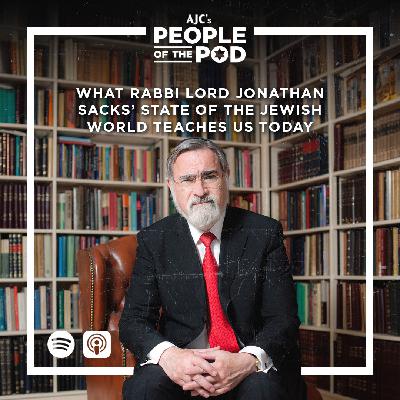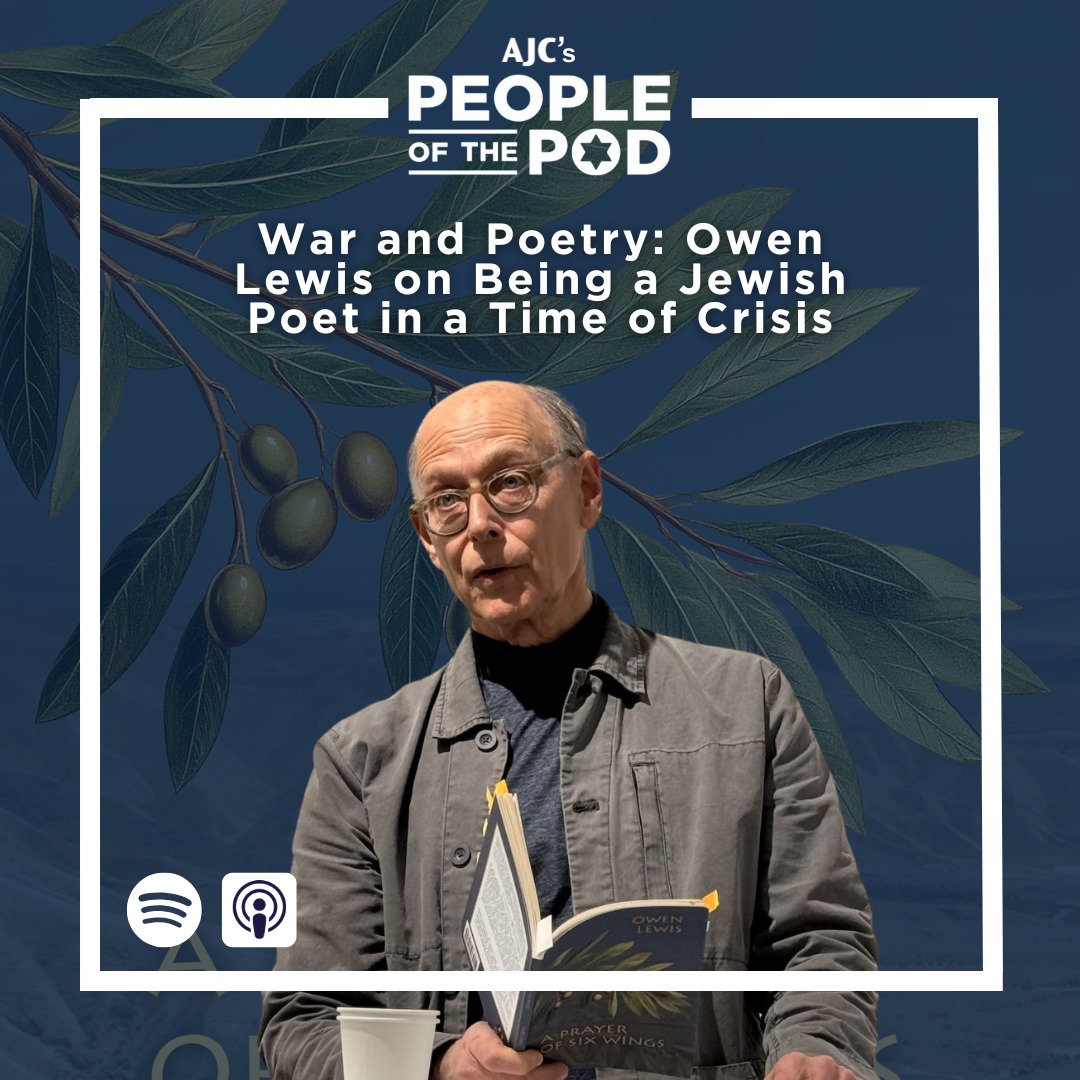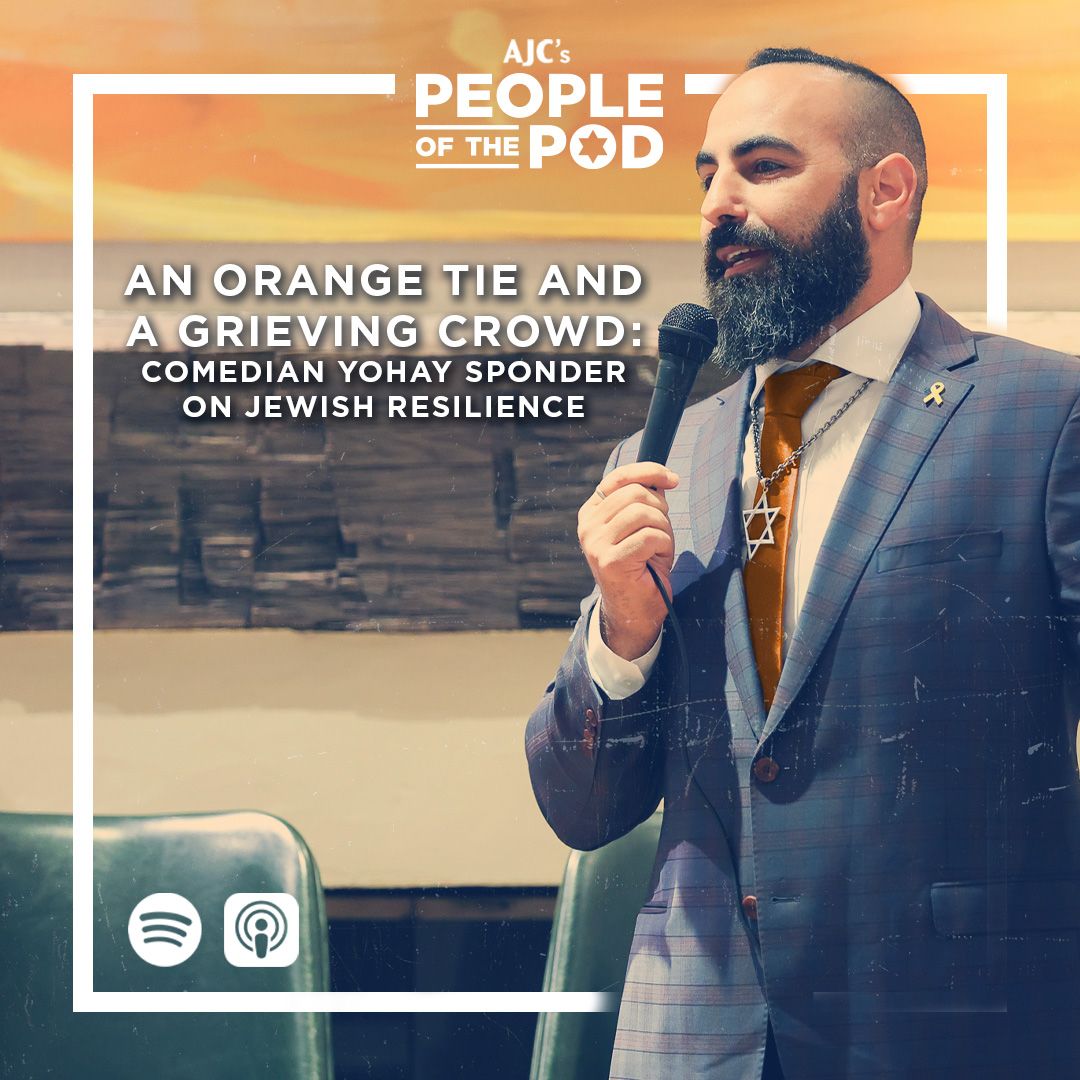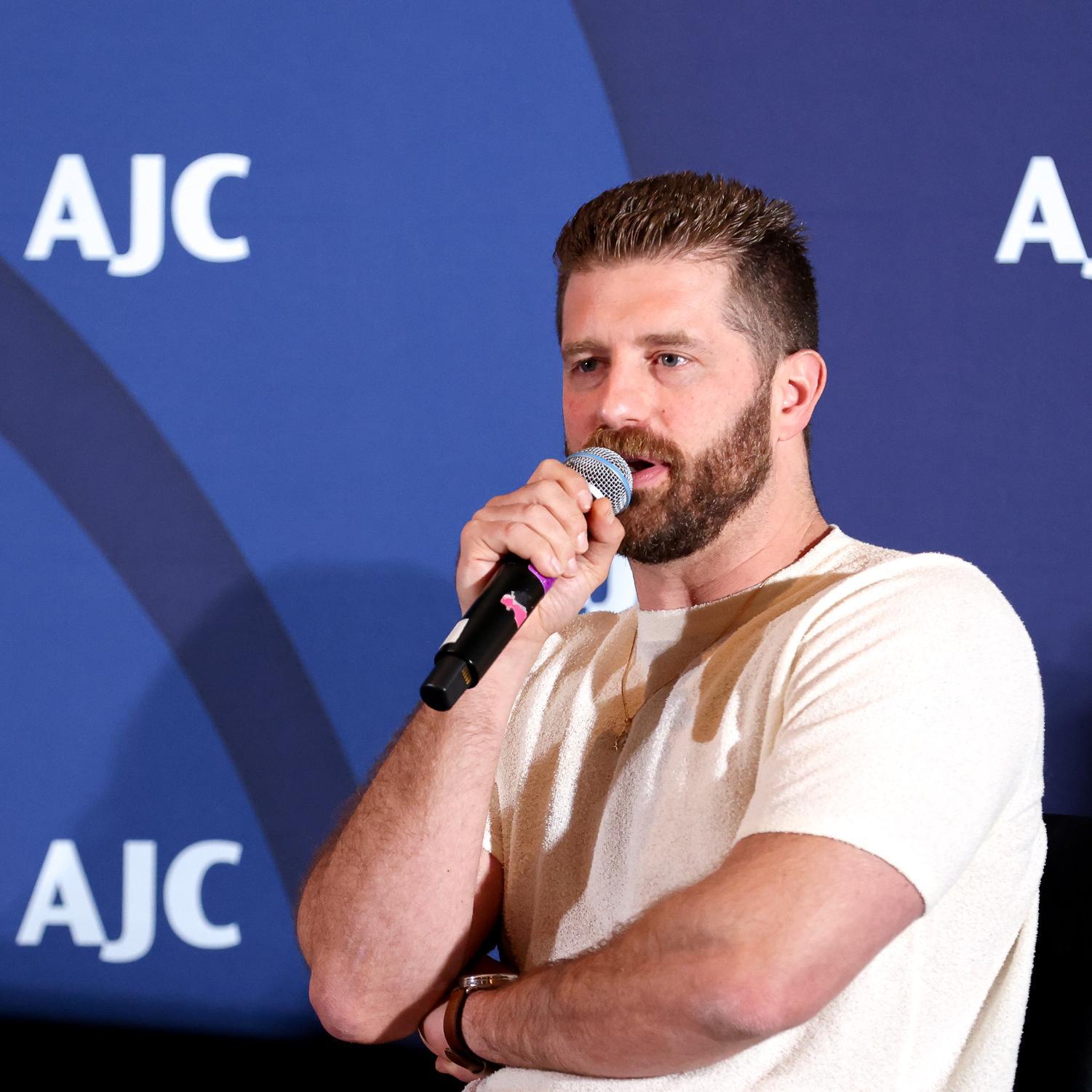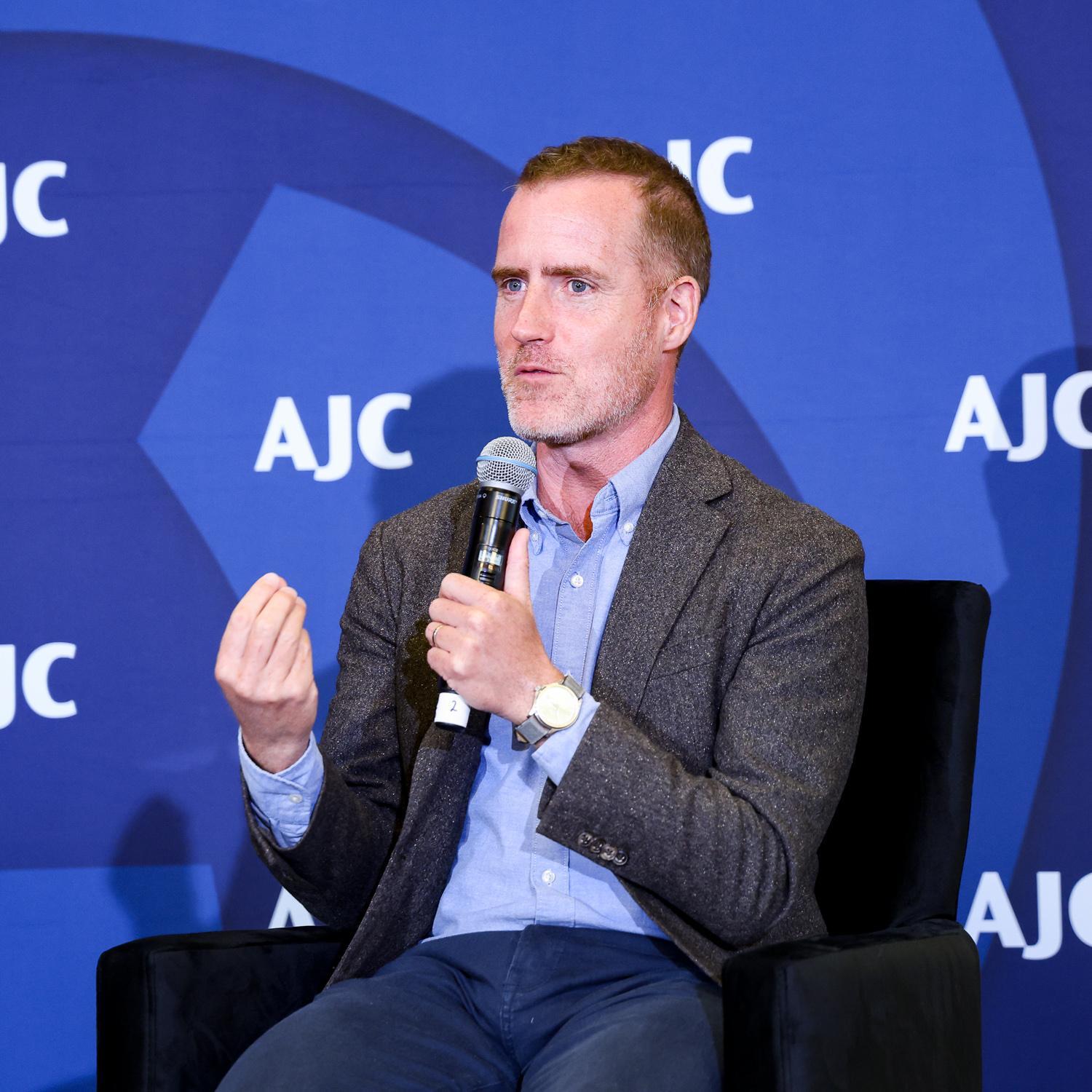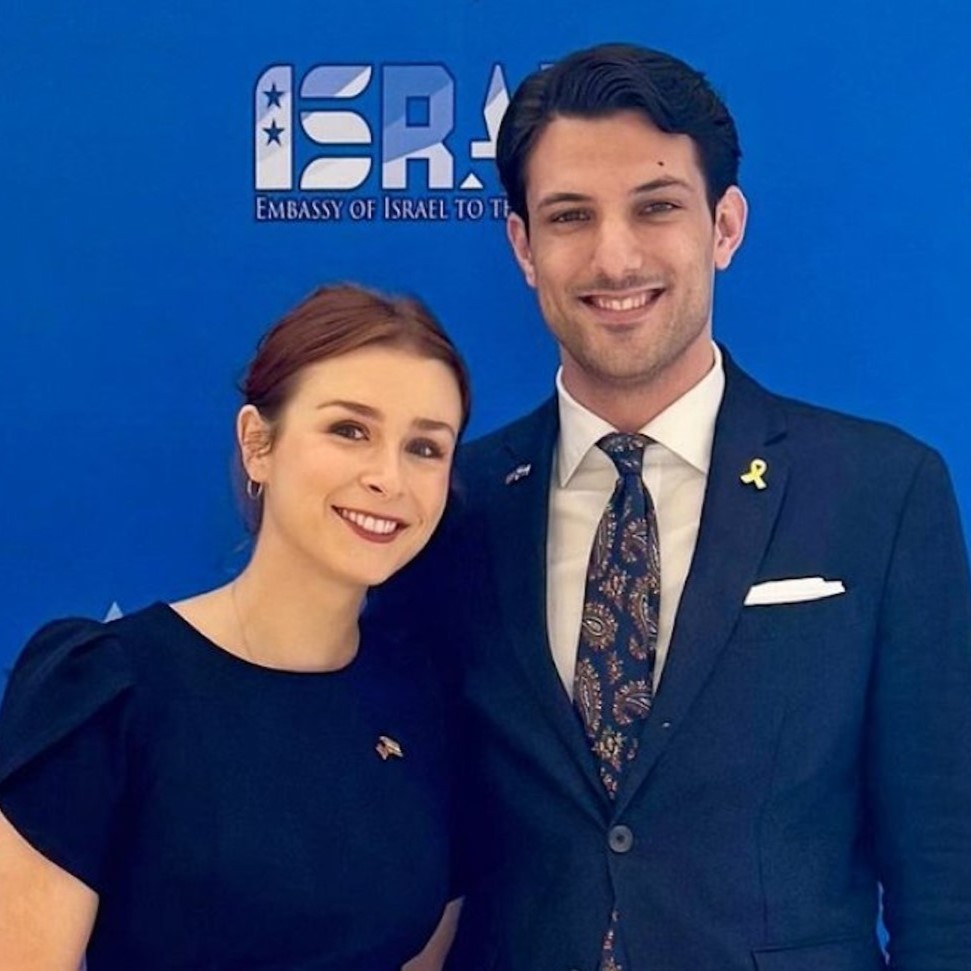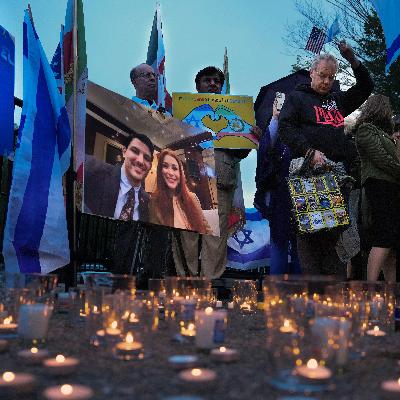What Rabbi Lord Jonathan Sacks’ State of the Jewish World Teaches Us Today
Description
In 2014, the late Rabbi Lord Jonathan Sacks stood on the AJC Global Forum stage and delivered a powerful call to action:
“We have to celebrate our Judaism. We have to have less oy and more joy… We never defined ourselves as victims. We never lost our sense of humor. Our ancestors were sometimes hated by gentiles, but they defined themselves as the people loved by God.”
Over a decade later, at AJC Global Forum 2025, AJC’s Director of Jewish Communal Partnerships, Meggie Wyschogrod Fredman, revisits that message in a special crossover episode between People of the Pod and Books and Beyond, the podcast of the Rabbi Sacks Legacy. She speaks with Dr. Tanya White, one of the inaugural Sacks Scholars and host of Books and Beyond, and Joanna Benarroch, Global Chief Executive of the Legacy, about Rabbi Sacks’s enduring wisdom and what it means for the Jewish future.
Resources:
The State of the Jewish World Address: Rabbi Lord Jonathan Sacks
The Inaugural Sacks Conversation with Tony Blair
Listen – AJC Podcasts:
Follow People of the Pod on your favorite podcast app, and learn more at AJC.org/PeopleofthePod
You can reach us at: peopleofthepod@ajc.org
If you’ve appreciated this episode, please be sure to tell your friends, and rate and review us on Apple Podcasts or Spotify.
Transcript of the Interview:
Manya Brachear Pashman:
On this week 16 years ago, the late Rabbi Lord Jonathan Sacks published Future Tense, a powerful vision of the future of Judaism, Jewish life, and the state of Israel in the 21st Century. Five years later, he delivered a progress report on that future to AJC Global Forum.
On the sidelines of this year’s Global Forum, my colleague Meggie Wyschogrod Fredman spoke with two guests from the Rabbi Sacks Legacy, which was established after his death in 2020 to preserve and teach his timeless and universal wisdom.
Meggie Wyschogrod Fredman:
In 2014, Rabbi Lord Jonathan Sacks addressed our Global Forum stage to offer the state of the Jewish world. Modeled after the US President's State of the Union speech given every year before Congress and the American people, this address was intended to offer an overview of what the Jewish people were experiencing, and to look towards our future. The full video is available on AJC's website as well as the Sacks Legacy website.
For today's episode, we are holding a crossover between AJC's People of the Pod podcast and Books and Beyond, the Rabbi Sacks podcast. On Books and Beyond, each episode features experts reflecting on particular works from Rabbi Sacks. Channeling that model, we’ll be reflecting on Rabbi Sacks’ State of the Jewish World here at AJC's 2025 Global Forum in New York. AJC has long taken inspiration from Rabbi Lord Jonathan Sacks and today, AJC and the Rabbi Sacks legacy have developed a close partnership.
To help us understand his insights, I am joined by two esteemed guests. Dr. Tanya White is one of the inaugural Sacks Scholars and the founder and host of the podcast Books and Beyond, the Rabbi Sacks podcast. Joanna Benarroch is the Global Chief Executive of the Rabbi Sacks legacy. And prior to that, worked closely with Rabbi Sacks for over two decades in the Office of the Chief Rabbi.
Joanna, Tanya, thank you for being with us here at AJC's Global Forum.
Tanya White:
It's wonderful to be with you, Meggie.
Joanna Benarroch:
Thank you so much, Meggie.
Meggie Wyschogrod Fredman:
I want to get to the State of the Jewish World. I vividly remember that address. I was with thousands of people in the room, Jews from different walks of life, Jews from around the globe, as well as a number of non-Jewish leaders and dignitaries. And what was so special is that each of them held onto every single word.
He identifies these three areas of concern: a resurgence of antisemitism in Europe, delegitimization of Israel on the global stage, and the Iranian regime's use of terror and terror proxies towards Israel.
This was 2014, so with exception of, I would say today, needing to broaden, unfortunately, antisemitism far beyond Europe, to the skyrocketing rates we're living through today, it's really remarkable the foresight and the relevance that these areas he identified hold.
What do you think allowed Rabbi Sacks to see and understand these challenges so early, before many in the mainstream did? And how is his framing of antisemitism and its associated threats different from others? And I'll let Tanya jump in and start.
Tanya White:
So firstly, I think there was something very unique about Rabbi Sacks. You know, very often, since he passed, we keep asking the question, how was it that he managed to reach such a broad and diverse audience, from non Jews and even in the Jewish world, you will find Rabbi Sacks his books in a Chabad yeshiva, even a Haredi yeshiva, perhaps, and you will find them in a very left, liberal Jewish institution. There's something about his works, his writing, that somehow fills a space that many Jews of many denominations and many people, not just Jews, are searching for. And I think this unique synthesis of his knowledge, he was clearly a religious leader, but he wasn't just uniquely a religious leader.
He was a scholar of history, of philosophy, of political thought, and the ability to, I think, be able to not just read and have the knowledge, but to integrate the knowledge with what's going on at this moment is something that takes extreme prowess and a very deep sense of moral clarity that Rabbi Sacks had.
And I would say more than moral clarity, is a moral imagination. I think it was actually Tony Blair. He spoke about the fact that Rabbi Sacks had this ability, this kind of, I think he even used the term moral imagination, that he was able to see something that other people just couldn't see.
Professor Berman from University of Bar Ilan, Joshua Berman, a brilliant Bible scholar. So he was very close to Rabbi Sacks, and he wrote an article in Israeli, actually, an Israeli newspaper, and he was very bold in calling Rabbi Sacks a modern day prophet.
What is a prophet? A prophet is someone who is able to see a big picture and is able to warn us when we're veering in the wrong direction. And that's what you see in the AJC address, and it's quite incredible, because it was 11 years ago, 2014. And he could have stood up today and said exactly the same thing.
Rabbi Jonathan Sacks:
But there is nonetheless a new antisemitism. Unlike the old it isn't hatred of Jews for being a religion. It isn't hatred of Jews as a race. It is hatred of Jews as a sovereign nation in their own land, but it has taken and recycled all the old myths. From the blood libel to the Protocols of the Elders of Zion.
Though I have to confess, as I said to the young leaders this morning, I have a very soft spot for antisemites, because they say the nicest things about Jews. I just love the Protocols of the Elders of Zion. Because, according to this, Jews control the banks, Jews control the media, Jews control the world. Little though they know, we can't even control a shul board meeting.
Tanya White:
So what's fascinating is, if you look at his book Future Tense, which was penned in 2009.The book itself is actually a book about antisemitism, and you'll note its title is very optimistic, Future Tense, because Rabbi Sacks truly, deeply believed, even though he understood exactly what antisemitism was, he believed that antisemitism shouldn't define us. Because if antisemitism defines who we are, we'll become the victims of external circumstances, rather than the agents of change in the future.
But he was very precise in his description of antisemitism, and the way in which he describes it has actually become a prism through which many people use today. Some people don't even quote him. We were discussing it yesterday, Joanna, he called it a mutating virus, and he speaks about the idea that antisemitism is not new, and in every generation, it comes in different forms. But what it does is like a virus. It attacks the immune system by mutating according to how the system is at the time.
So for example, today, people say, I'm not antisemitic, I'm just anti-Zionist. But what Rabbi Sacks said is that throughou

